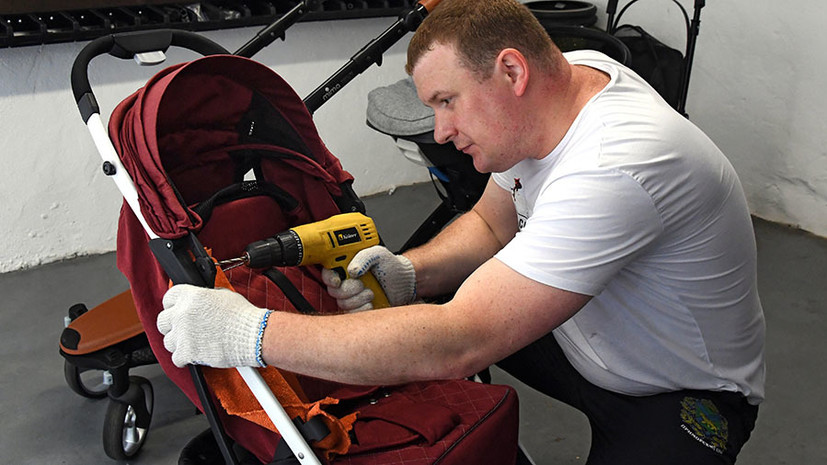The number of registered self-employed in Russia has reached 1 million. This was announced on Friday, August 28, by the Federal Tax Service (FTS).
“During the experiment since the beginning of 2019, the self-employed registered incomes of more than 130 billion rubles and paid taxes for 3.5 billion rubles. At the same time, 82% of the self-employed registered now had no official income from entrepreneurial activity, and 42% had no official income at all in the year before registration, ”the ministry said in a statement.
Recall that self-employed people include people who work for themselves, receive money for their services from individuals and legal entities, do not have an employer and do not involve additional workers in their activities. Moreover, the annual income of such citizens should not exceed 2.4 million rubles.
Self-employed people pay professional income tax. When working with individuals, its rate is 4%, and when settling with individual entrepreneurs and organizations - 6%.
“More and more Russians are beginning to appreciate the tax on professional income. Legalization in the status of self-employed makes it possible to become "transparent" for banks and counterparties who also need to keep records. In addition, you can register through the application in your smartphone, avoiding visiting the Federal Tax Service, which could become a serious barrier for the majority. It is also important that the self-employed status can be abandoned at any time, "Mikhail Dorofeev, chairman of the board of the Obnovlenie KPK, told RT.
In addition, official registration as self-employed allows citizens to protect their labor rights and professional interests, as well as save for retirement. Pavel Sigal, vice president of the all-Russian public organization of small and medium-sized businesses "Support of Russia", told RT in an interview with RT.
From January 1, 2019, Russians began to pay tax on professional income in Moscow, in the Moscow and Kaluga regions, as well as in the Republic of Tatarstan. Since January 2020, a special tax regime for the self-employed has been launched in 19 more regions, and since July 1, all constituent entities of Russia have had the opportunity to join the initiative.
According to the Federal Tax Service, at the moment the project is already operating in 79 Russian regions, and 3.5 thousand people are registered as self-employed every day. At the same time, in September, a special tax regime should be launched in five more regions of the country.
As Pavel Sigal noted, initially the authorities expected about 200 thousand people to register as self-employed in Russia in 2019. Meanwhile, the final figure turned out to be much higher and amounted to about 350 thousand. Moreover, in 2020 the government expected an increase in the number of self-employed only up to 800 thousand people.
“Although the coronavirus pandemic has made serious adjustments to the plans of citizens and forced them to reconsider plans for the future, it is quite possible that at least 30% of the total number of self-employed in Russia will be able to register officially this year and next. According to various sources, there are from 5 to 10 million such people in the country, ”added Pavel Sigal.
Note that, in accordance with the instructions of Vladimir Putin, from July 1, Russians will be able to receive the status of self-employed not from 18, but from 16 years. According to the president, about 3 million citizens will be able to use this right.
According to the FTS's calculations, today the average age of the participants in the experiment is 30-40 years old, with 6,500 self-employed under 18 years old. The main occupations of the self-employed are taxi, delivery of goods, apartment rental, tutoring, repair, marketing and IT services.
Russians registered as self-employed automatically receive a tax deduction of 10 thousand rubles. Also, on behalf of the President, in the context of the coronavirus pandemic, special support measures were provided for such citizens. They are fully refunded the 2019 professional income tax. In addition, this year they are provided with additional tax capital from the state in the amount of one minimum wage (12,130 rubles), which can be used to pay future taxes.
“These people believed in the state, believed in its guarantees to work in a protected and civilized manner. I believe that such an aspiration should be supported and even encouraged, ”said Vladimir Putin.
In subsequent years, as a result of the program, analysts interviewed by RT expect an improvement in tax collection, which will have a positive effect on the country's budget. In addition, specialists believe that one of the main advantages of the project for the economy is the reduction of shadow employment.
“Whitewashing the income of such a large number of citizens gives the government more complete information about the real incomes of the population in the country, as well as about poverty. This information makes it possible to provide assistance to citizens in need more productively, saving budget funds, ”Ivan Kapustyansky, a leading analyst at Forex Optimum, told RT.

